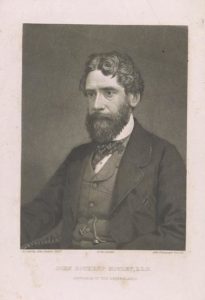
Secession and Slavery in Great Britain II: John Lothrop Motley and the Causes of the Civil War in The Times of London
To read Part I of my analysis of this debate, click here. Part I discusses two articles by Cassius Clay, an antislavery Kentuckian and U.S. Minister to the Russian court, and Edwin DeLeon, a secessionist and former U.S. minister to Egypt. British neutrality inspired Clay and DeLeon to present their ...
Read More
Read More
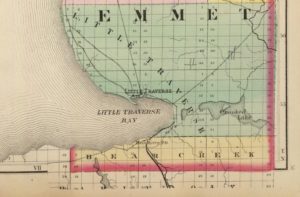
The Contours of Settler Colonialism in Civil War Pension Files
Today we share our first post from our new correspondent, Dr. Michelle Cassidy, an assistant professor of history at Central Michigan University. Her current research emphasizes the importance of American Indian military service to discussions of race and citizenship during the Civil War era. Drop a note in the comments ...
Read More
Read More

Author Interview: William S. Kiser
Our author interview for the June 2019 issue is with William S. Kiser, author of “‘We Must Have Chihuahua and Sonora’: Civil War Diplomacy in the U.S.-Mexico Borderlands.” He is an assistant professor of history at Texas A&M University-San Antonio, where he teaches courses in U.S. history and the American ...
Read More
Read More
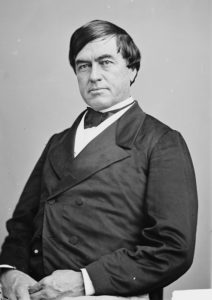
Secession and Slavery in Great Britain: Cassius Clay and Edwin DeLeon debate in The Times of London
On May 13, 1861, Queen Victoria announced Great Britain’s neutrality in the Civil War, which raised Southern hopes of recognition and Northern fears of the same. The Queen’s proclamation and public reaction to the outbreak of hostilities were the result of long-standing assumptions about the sectional division in the United ...
Read More
Read More
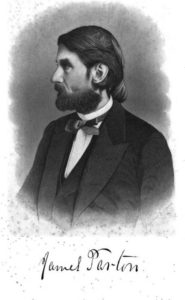
A Historian for Troubled Times: James Parton, Andrew Jackson, and the Secession Winter
The cry echoed throughout the crisis which followed Abraham Lincoln’s election: “Oh, for an hour of Jackson!” It crossed party and even sectional lines, linking dyed-in-the-wool Democrats to rock-ribbed Republicans, and indignant northerners to anxious southern dissenters. As they scorned lame-duck James Buchanan and awaited his untested successor, many Unionists ...
Read More
Read More
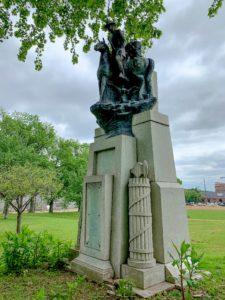
The Contested Memories of General Nathaniel Lyon in St. Louis
The removal of a Confederate monument from its original dedication spot in Forest Park almost two years ago aroused a great deal of controversy among St. Louis residents. Like the debates taking place in other cities that have Confederate iconography, supporters praised the removal of a monument they considered to ...
Read More
Read More
Editor’s Note: June 2019 Issue
Today we share a preview of our June 2019 issue, reprinting here the editor's note by Judy Giesberg. To access these articles, you can purchase a copy of the issue or subscribe to the journal. It will also be available (in June) on Project Muse. Readers of this issue will ...
Read More
Read More
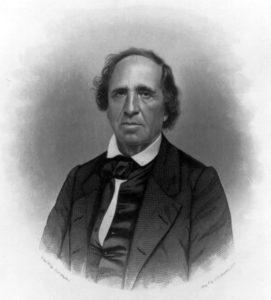
As The Churches Go, So Goes the Nation?: Evangelical Schism and American Fears on the Eve of the Civil War
On April 26, 2019, the Judicial Council of the United Methodist Church (UMC) upheld the core components of a plan reaffirming and strengthening the church’s formal ban on the ordination of LGBTQ ministers and on the recognition of same-sex marriage.[1] This “Traditional Plan” was adopted at a special session of ...
Read More
Read More
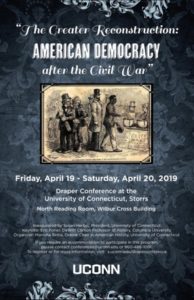
2019 Draper Conference Review: “The Greater Reconstruction: American Democracy after the Civil War,” Part II
Day two of the 2019 Draper Conference brought four more panels, including a plenary session that concluded the proceedings. For my review of day one of the conference, see my previous post on Muster. A panel on the topic of “Racial Terror and Violence” started off the morning block and ...
Read More
Read More
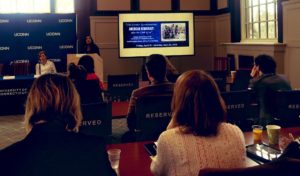
2019 Draper Conference Review: “The Greater Reconstruction: American Democracy after the Civil War,” Part I
On April 19 and 20, the University of Connecticut at Storrs hosted the 2019 Draper Conference on the topic of “The Greater Reconstruction: American Democracy after the Civil War.” The two-day event featured eight panels, consisting of thirty-one paper presentations and a keynote address.[1] All told, the conference revealed an ...
Read More
Read More

Author Interview: Caroline Janney
Our special issue in March 2019 on Civil War veterans includes an article by Caroline Janney, titled “Free to Go Where We Liked: The Army of Northern Virginia After Appomattox.” Janney is Professor of History at the University of Virginia. She is the author of Burying the Dead but Not ...
Read More
Read More
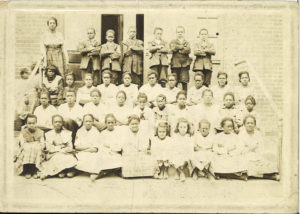
A Long Retreat: Episodes 3 and 4 of Reconstruction: America After the Civil War
To catch up, you'll find Millington Bergeson-Lockwood's review of Episodes 1 and 2 here. No matter how “bitter the chastening rod,” to borrow from the Black National Anthem, the second part of the Henry Louis Gates’s documentary on Reconstruction shows how African Americans kept fighting well after the Compromise of ...
Read More
Read More
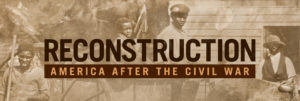
Facing the “False Picture of Facts”: Episodes 1 and 2 of Reconstruction: America After the Civil War
In 1884, formerly enslaved African American author and newspaper editor T. Thomas Fortune wrote Black and White: Land, Labor, and Politics in the South, his analysis of the political and economic conditions in the South after the formal end of Reconstruction in 1877. He described the uncertain reality facing freedmen ...
Read More
Read More
The Multiple Meanings of Military Occupation: A Report from the OAH
The United States’ prolonged military engagement in the Middle East has given new prominence and urgency to occupation studies across a wide range of disciplines, including our own. Taking seriously the need to contemplate and reckon with the multiple meanings of military occupation, a panel at the Organization of American ...
Read More
Read More
“Where the spiders are”: Law, Economy, and the North at the Coming of the Civil War
At this year’s meeting of the Organization of American Historians (OAH) in Philadelphia, participants heard from leading slavery historians at a panel titled “Kidnapping, Capital, and Slavery: Rethinking the North in the Civil War Era.” This panel explored how the kidnapping of free African Americans from Northern free states affected ...
Read More
Read More

Changes at Muster HQ
We are pleased to announce the addition of a new field correspondent to the Muster team! Please join us in welcoming Michelle Cassidy, who will be contributing posts on Native Americans in the Civil War era, starting sometime later this spring. Dr. Cassidy is an assistant professor of history at ...
Read More
Read More